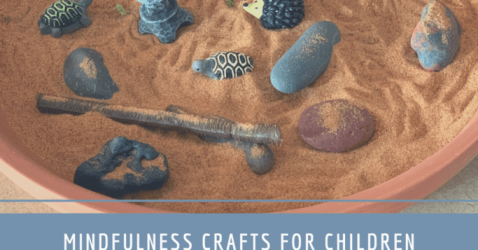Nature Walks And Mood Enhancement: An 85% Success Rate
Imagine if there was a simple and enjoyable activity that could significantly boost your mood and overall well-being. Well, look no further than nature walks! According to recent studies, these serene strolls through natural environments have been found to have an impressive success rate of 85% when it comes to enhancing one’s mood. Whether it’s the refreshing scent of fresh air or the calming sounds of chirping birds, it seems that nature has a magical way of lifting our spirits. So, lace up your walking shoes and get ready to embark on a journey that is bound to leave you feeling happier and rejuvenated.
I. Introduction
Going for a nature walk might seem like a simple activity, but it can have profound effects on your overall well-being. Research has shown that spending time in nature can significantly enhance your physical health, mental health, and emotional well-being. Not only does it provide an opportunity to disconnect from the stresses of everyday life, but it also allows you to connect with the natural world around you. In this article, we will explore the various benefits of nature walks and how they can positively impact your mood. We will also discuss tips for enhancing your experience and incorporating nature walks into your daily life.
II. Benefits of Nature Walks
A. Physical Health
Nature walks offer numerous physical health benefits. Walking itself is a low-impact exercise that can improve cardiovascular fitness and strengthen muscles. When you take your walk in a natural setting, you may find yourself facing varied terrains, such as hills or trails, which can provide an additional challenge and help improve your overall fitness level. Regular physical activity like nature walks can also lower blood pressure, reduce the risk of chronic diseases, and improve bone density.
B. Mental Health
Spending time in nature has been shown to have significant positive effects on mental health. Nature walks can help reduce symptoms of anxiety, depression, and stress. Being in a natural environment allows you to engage with your surroundings and take a break from the demands and pressures of daily life. The peace and tranquility of nature can provide a calming effect on the mind, enhancing mental clarity and reducing mental fatigue.
C. Emotional Well-being
Nature walks have the power to uplift your mood and improve emotional well-being. The beauty of the natural world can evoke a sense of awe and wonder, which can lead to feelings of joy and happiness. Being in nature also provides opportunities for solitude and reflection, allowing you to connect with your own thoughts and emotions. This self-awareness and introspection can contribute to a greater sense of emotional well-being and overall life satisfaction.
D. Stress Reduction
One of the most significant benefits of nature walks is their ability to reduce stress. The sights, sounds, and smells of the natural environment activate our relaxation response and promote a sense of calmness. In addition, physical activity during the walk releases endorphins, which are natural mood-boosting chemicals in the brain. The combination of being in nature and engaging in physical activity creates a powerful stress-relieving effect, leaving you feeling refreshed and rejuvenated.
III. Connection between Nature and Mood
A. Research Studies
Several research studies have investigated the connection between nature and mood enhancement. One study published in the Journal of Environmental Psychology found that spending just 20 minutes in nature can significantly boost mood and well-being. Another study conducted by the University of Exeter Medical School revealed that individuals who engaged in outdoor activities, such as nature walks, experienced improvements in self-esteem and mood.
B. Positive Effects on Brain Chemistry
Nature walks have been shown to have positive effects on brain chemistry. Spending time in nature can increase the production of endorphins, dopamine, and serotonin – neurotransmitters responsible for regulating mood and emotions. These natural chemicals promote feelings of happiness, relaxation, and overall well-being.
C. Influence on Serotonin Levels
Serotonin, often referred to as the “happy hormone,” plays a crucial role in regulating mood and preventing depression. Nature walks have been found to increase serotonin levels in the brain, leading to improved mood and a greater sense of happiness. The combination of physical activity, exposure to natural light, and the calming environment of nature all contribute to the elevation of serotonin levels.
IV. Factors Affecting Mood Enhancement
A. Duration of the Walk
The duration of your nature walk can affect how much it enhances your mood. While even a short walk can have positive effects, longer walks provide more opportunities for relaxation, reflection, and engagement with nature. Aim for a minimum of 30 minutes, but feel free to extend it to an hour or more if you have the time and energy.
B. Frequency of Nature Walks
The frequency at which you engage in nature walks can also impact your mood enhancement. Just as consistent physical exercise leads to better physical health, frequent nature walks can lead to better mental and emotional well-being. Try to incorporate nature walks into your weekly routine, aiming for at least two to three walks per week.
C. Participant’s Level of Physical Activity
The level of physical activity during a nature walk can influence the extent of mood enhancement. Engaging in brisk walking or other forms of moderate-intensity exercise can stimulate the release of endorphins and promote a greater sense of well-being. Choose a pace that challenges you but still allows you to enjoy the natural surroundings.
D. Surrounding Environment
The surrounding environment plays a significant role in mood enhancement during nature walks. Choose a location that offers scenic beauty, such as a forest, beach, or park. The presence of greenery, flowing water, and natural sounds can have a calming and soothing effect on the mind, leading to enhanced mood and relaxation.
V. Tips for Enhancing Mood on Nature Walks
A. Choose a Scenic Location
To maximize the mood-enhancing benefits of your nature walk, select a scenic location. Look for parks, nature reserves, or hiking trails that offer beautiful views, lush vegetation, or interesting wildlife. Being surrounded by natural beauty can evoke a sense of awe and wonder, sparking joy and happiness.
B. Engage the Senses
During your nature walk, make a conscious effort to engage all your senses. Notice the vibrant colors of flowers, the earthy scent of the forest, the sound of birds chirping, and the sensation of the breeze on your skin. By fully immersing yourself in the present moment and being mindful of your surroundings, you can enhance the mood-enhancing benefits of your walk.
C. Practice Mindfulness
Mindfulness involves bringing your attention to the present moment without judgment. While on your nature walk, try to let go of any thoughts or worries and fully focus on the sights, sounds, and sensations around you. This practice can help calm a busy mind and promote a greater sense of inner peace and well-being.
D. Unplug and Disconnect
To truly benefit from your nature walk, consider unplugging from electronic devices and disconnecting from the digital world. Take this time to connect with nature and yourself, without the distractions of notifications and social media. By immersing yourself fully in the natural environment, you can experience a deeper connection and a greater boost in mood.
VI. Case Studies and Success Stories
A. Testimonials from Individuals
Countless individuals have experienced the mood-enhancing benefits of nature walks. Sarah, a busy professional, shared her experience: “After incorporating regular nature walks into my routine, I noticed a significant improvement in my mood and overall well-being. The fresh air, beauty of nature, and escape from technology have become essential in reducing my stress levels and enhancing my happiness.”
B. Clinical Trials and Research Findings
Clinical trials and research studies have also confirmed the positive impact of nature walks on mood enhancement. In a study conducted by Stanford University, participants who walked in nature exhibited reduced activity in the part of the brain associated with depression compared to those who walked in an urban setting. These findings highlight the powerful influence nature can have on our mood and mental health.
VII. Tips for Incorporating Nature Walks into Daily Life
A. Set Realistic Goals
When incorporating nature walks into your daily life, it’s essential to set realistic goals. Start with small walks and gradually increase the duration and frequency as you build stamina and motivation. Setting achievable goals helps maintain motivation and prevents burnout.
B. Find a Walking Buddy
Walking with a friend or a group can make nature walks more enjoyable and increase accountability. Connecting with others who share the same interest in nature can create a sense of community and make the experience even more fulfilling.
C. Schedule Walks in Your Calendar
To ensure consistent engagement in nature walks, schedule them in your calendar as you would with any other important commitment. Blocking off time specifically for nature walks helps prioritize your well-being and ensures you make it a regular part of your routine.
D. Experiment with Different Routes
To keep your nature walks exciting and prevent monotony, experiment with different routes and explore various locations. Discover new trails, parks, or green spaces in your area to experience different environments and keep your walks fresh and engaging.
VIII. Addressing Challenges and Barriers
A. Weather Conditions
Inclement weather can pose a challenge to engaging in nature walks. However, there are ways to overcome this barrier. Invest in appropriate clothing and gear, such as rain jackets or waterproof shoes, to continue enjoying nature walks even on rainy or snowy days. Consider indoor alternatives like visiting botanical gardens or nature-themed museums on days when the weather is less than ideal.
B. Time Constraints
Finding time for nature walks may be challenging with a busy schedule. However, it’s essential to prioritize self-care and make time for activities that enhance your well-being. Look for opportunities to squeeze in short walks during breaks or combine nature walks with other activities, such as running errands or spending time with loved ones.
C. Lack of Accessible Green Spaces
Living in urban areas with limited access to green spaces can make it challenging to engage in nature walks. However, urban environments often have parks, community gardens, or even rooftop gardens that offer nature escape opportunities. Explore these green spaces in your vicinity, or consider taking a short trip to nearby rural areas or nature reserves on weekends.
D. Overcoming Excuses
It’s easy to come up with excuses to avoid nature walks, especially when you’re feeling tired or overwhelmed. However, remind yourself of the numerous benefits and the impact they can have on your mood and overall well-being. It’s important to push past these barriers and prioritize your mental and emotional health.
IX. Conclusion
Nature walks have the power to enhance mood, improve mental health, and promote overall well-being. With the numerous physical, mental, and emotional benefits they offer, incorporating nature walks into your daily life is a simple yet effective way to prioritize self-care. By choosing scenic locations, engaging the senses, practicing mindfulness, and disconnecting from technology, you can enhance the mood-enhancing effects of your nature walks. Overcoming challenges and incorporating nature walks as a regular part of your routine can lead to a happier, healthier, and more balanced life.
X. Additional Resources
A. Books about Nature and Well-being
- “The Nature Fix: Why Nature Makes Us Happier, Healthier, and More Creative” by Florence Williams
- “The Nature Principle: Human Restoration and the End of Nature-Deficit Disorder” by Richard Louv
- “Your Brain on Nature: The Science of Nature’s Influence on Your Health, Happiness, and Vitality” by Eva M. Selhub and Alan C. Logan
B. Websites with Nature Walk Recommendations
- National Parks Service: www.nps.gov
- AllTrails: www.alltrails.com
- Great Walks: www.greatwalks.com
C. Nature-Based Apps
- Seek by iNaturalist – Identify plants, animals, and fungi around you
- Headspace – Provides guided meditations and mindfulness exercises
- Forest – Helps you stay focused and present by planting virtual trees while you are away from your phone.

















